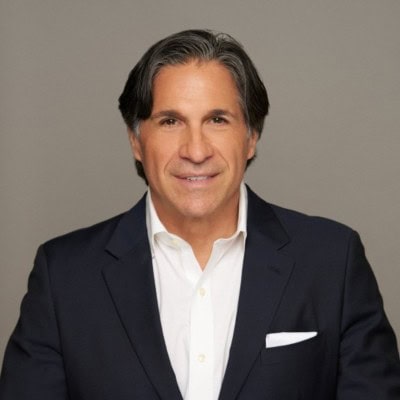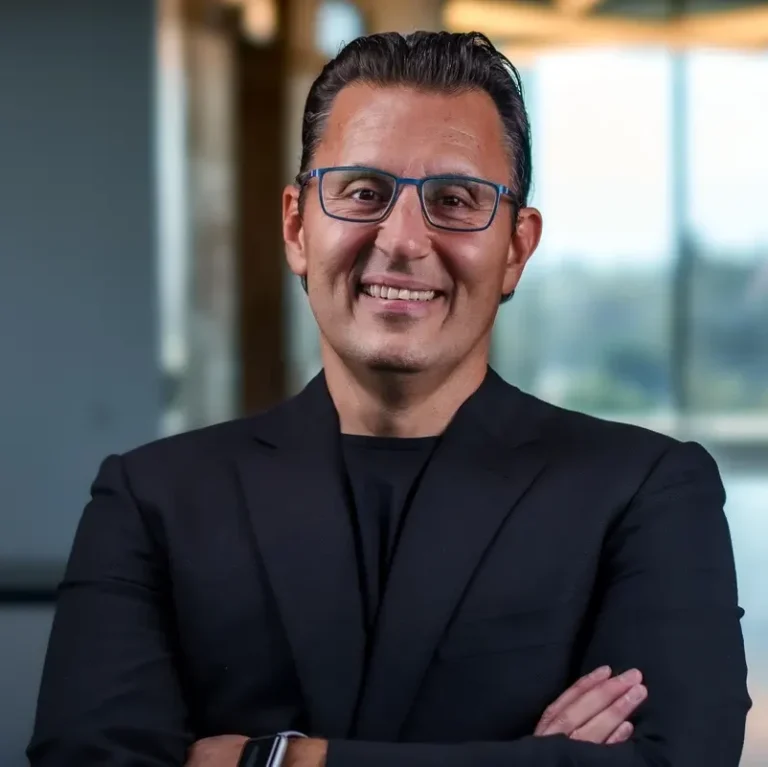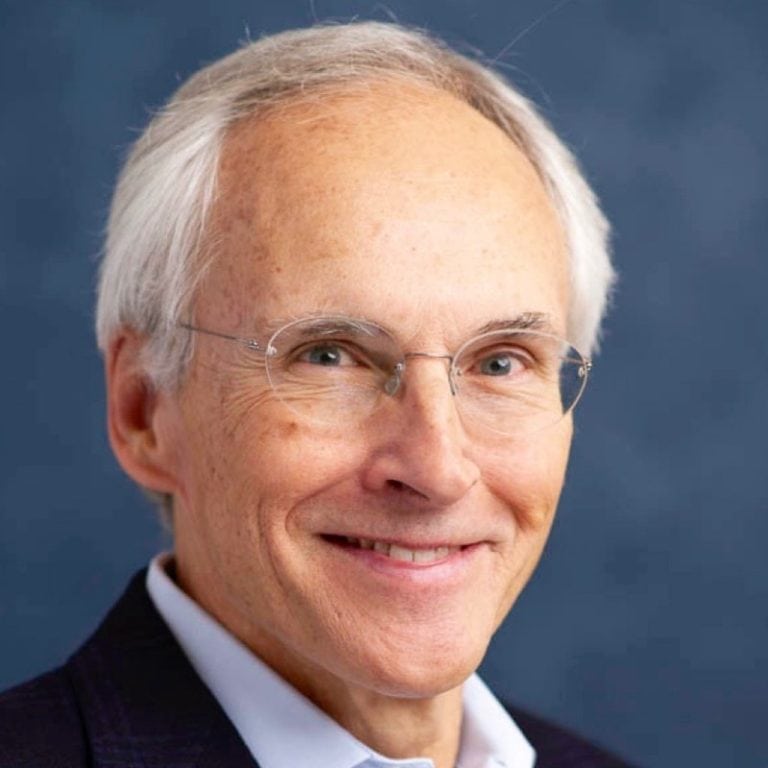
December 7, 2023
Vijay Sundaram, Chief Strategy Officer, Zoho Corporation
The Art Of Scaling a $1.0 Billion Profitable Growth Culture
Ever wondered how a company can maintain a strong culture of loyalty and employee-first policies in today’s global business climate? India based multi-national Zoho Corporation is doing just that, along with a mission to make “technology more affordable”. And, at $1 billion in annual revenue—they are doing it at scale.
Deep rooted in its culture, values and convictions, the leadership team takes pride in being able to serve Small & Medium Businesses’ (SMB) technology needs in what they believe is “an era of humility for technologists”.
Another refreshing strategy, for a tech. brand, is that they have stayed away from the typical IPO track, and instead focus on being a profitable privately held company—with a rapid growth trajectory.
With 15,000 employees and 100 million users in 150 countries—Zoho has built (not acquired) a diversified product portfolio that offers customers simple solutions, in a market crowded with complex platforms.
At their annual Zoholics conference in Austin TX, Dean DeBiase caught up with Vijay Sundaram, one of Zoho’s top leaders and Chief Strategy Officer. A serial tech. founder, Sundaram spearheads strategy, runs their global partner programs—and is pushing the envelope from SMB into the large-enterprise sector.
Tune in as we unpack what’s next for them—from scaling their unique culture and long-term sustainability strategy, to secrets behind their employee-first and customer wins mantra.
Building A Long Game Culture
Crystallizing certain ideas and practices into convictions, and building thereof is something team Zoho has cemented immeasurably over the years. Employees are the backbone of every company, but what’s most often heard is “customers first”; seldom “employees first”. A company that takes pride in putting its employees first while still fulfilling and/ or exceeding customer expectations is a factor that sets Zoho apart from the rest of the marketplace. “Employees aren’t a fungible quantity for us. We haven’t laid anybody off. The CEO actually has made a statement that we won’t, and I would challenge you to find a CEO of a company this size to say that” reflects Sundaram, on what his company stands for. Growing impressively, Zoho’s headcount went up 300% outside India since the beginning of 2020. When most companies were left grappling with uncertainties from the pandemic, it’s a testament to their culture and strategy to have outpaced themselves from the competition.
Sustainability, Competition, Employee Focus
Promoting employee experience amidst breaking conventional wisdom has propelled Zoho’s path forward. From establishing offices in rural regions to creating Zoho schools, it’s employee focus through a sense of shared values and purpose. Zoho schools focuses on training students to face the demands of software careers irrespective of paper credentials. Analyzing a candidate’s potential and nurturing their abilities to become the managers of tomorrow is a strategy that has paid off, both in educating underserved communities and in building the innovative minds of the future.
“I always talk of the notion of loyalty being a two-way street. It’s not just the employee is loyal to you, you’re loyal to the employee. And the time you need to be loyal to the employee is when the going is rough, which usually is never the case. We have been through major dips.Three big ones, which is the reason why we have middle tier of managers who actually make the company. They’re doing the stuff and they persist over time and they are the people training the next generation of folks. I think it is sustainable. That doesn’t mean we will not face the risk of keeping it intact. We will. As you grow bigger, you’re going to have that risk. So we are very careful how we hire people and some other things, like when we grow certain regions. We make sure that somebody who leads up the region is from the old school and who comes in, who’s a 20-year veteran who comes into the region and maybe hires people that he or she needs to, that they become the glue over there. ”
In terms of customer success, offering their business solutions to address plethora of needs without being cost prohibitive, or stipulating prolonged contractual obligations, has fetched them huge dividends. Accolades for the Zoho ethos and value customers derive from their services has become a routine feature in conferences for the leadership team, setting them way apart from their competition.
Enterprise Market Expansion
People are “not cast into silos” at Zoho, and that Sundaram believes, is due to their “anti-credentialist” principles; where there’s ability to get things done, they foster “that faith that people have that I’m going to get rewarded for what I do and what I can make happen, and not because of something I was born with or I was happy to have had the good fortune to do.” People swapping roles from being a network engineer to transitioning into sales is not uncommon at Zoho; or conversely, facilitating scaling, as he believes their focus on capabilities helps them hunt in a larger pool of talent – a strategic advantage versus their competitors. Employees trusting that the company is “watching their back”, Zoho not tying themselves to candidate “badges or credentials”, and operating outside of silos have been major factors paving for rapid expansion.
“We bring many more solutions in one place. We can solve a bigger problem for the customer because we have so many more capabilities and so many more products, so it makes it easy for them to do business. And immediately, you would doubt that as a customer because you would fear being locked in, and we won’t lock you in. We won’t insist that you sign three year contracts. We won’t tell you that you have to buy this suite if you’re greater than a certain size. We won’t tell you, you need minimum number of licenses. All the games that they’re selling- we all came from enterprise world, we don’t want to do any of those things. ”
Viability in the long term is what keeps Vijay Sundaram thinking more of now. He underscores the pivotal role of culture and setting up that edifice that’ll help the company “sustain itself, just like it is now, built on a self sustaining model”, where financial bottomline is well taken care of without the need for outside valuations or funding. “A culture that’s enduring and lasts over time”, so the company keeps expanding strategically into more markets globally is the roadmap for the future – Especially markets atypical of SaaS companies, like in Africa and emerging markets in Eastern Europe, Latin America and more. As he puts it, they generate enough money to fund research and expansion, and with enough freedom vested into their model, going public is not on the cards for Zoho.
With massive technological change coming from AI and its impact, Zoho has adapted itself effortlessly leveraging its nimbleness and modern tools. A very refreshing and thriving business culture of productivity and loyalty, innovative strategies and expansion, that has made Zoho a highly competitive player in the enterprise market. The future looks very exciting, as they differentiate themselves strategically from the other big players in the enterprise world.











